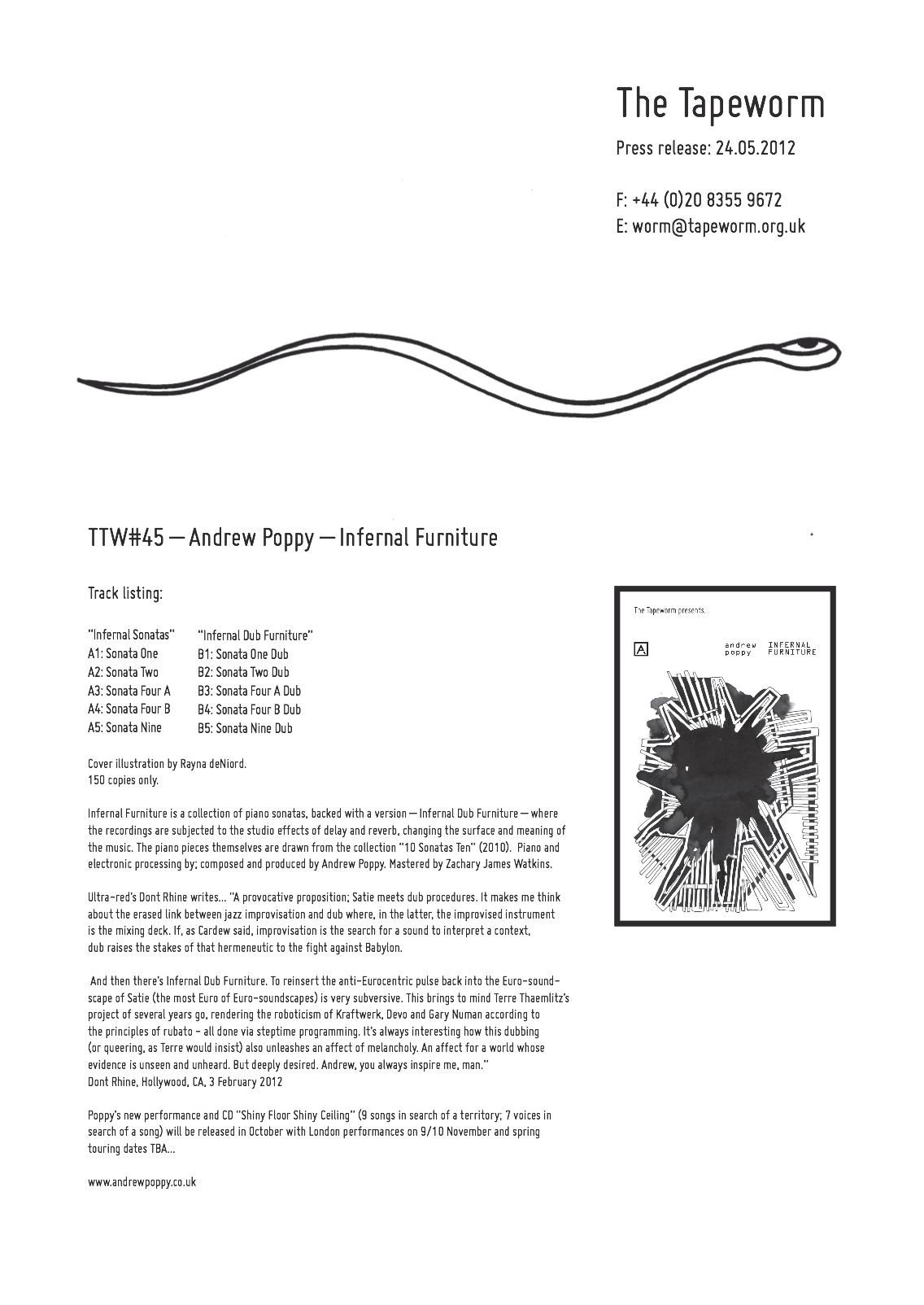Andrew Poppy writes…
"The piano; I've spent my life in front of a particular piece of furniture. Some days it saves my life. It allows me to find order and control in the chaos of thoughts and contradictory meanings that a day throws up. With it I can articulate creative thought. For me it’s better exercise than a gym. It takes physical control and co-ordination as well as mental agility. It can be like reading a great novel from another time.
Other days it seems an alienating, monk-like practice which develops a debilitating isolation under the cloak of a priesthood.If instruments all have their origins in an idea, what was that of the piano? It's a European invention whose mechanical technology could be seen as the sister of industrial machines such as the loom and the sewing machine. While most orchestral instruments play one note at a time – and therefore are related to the voice in a fundamental way – the piano can play many voices at the same time. It can represent many other instruments in a way others cannot. So it was always, although not exclusively, the classical composers’ preferred tool.
The piano is a piece of furniture that hides a mechanism, unlike orchestral instruments whose mechanisms are all outside, like Renzo Piano’s architecture: the Beau Bourg Museum, Paris.The piano is an icon of high culture but it is also a piece of domestic furniture. A bourgeois badge of culture or a petty bourgeois aspiration. This large cumbersome box sits at odds with modern life. Playing it in a urban domestic context is even more uncomfortable. The neighbour wants a recital not practice, and certainly not contemporary music…
Radio transmission of perfectly performed piano music, a small and tiny un-resonant image, is the most appropriate sound to be ambient in the sonic space of the modern home.The loom-like internal mechanism of the piano puts me in mind of images of 19th century industrial oppression: the textile mills, those ‘dark Satanic mills’ of William Blake’s poem/lyric. Sometimes the jangling and overpowering presence of the piano in the domestic space just seems diabolical, as the insides of factories must have seemed to farming folk. This is the origin of the title Infernal Furniture. The piano mechanism also suggests that instrument of torture in Kafka’s The Penal Colony. The piano hammers’ impact like a sewing machine, puncturing the body in a series of sharp attacks. Tattooing the air with a bloody image.
Although these associations with the piano’s mechanism spiral into oppressive images, piano music itself brings optimism, hope and enchantment. I haven't figured out what this means…" –
Andrew Poppy, London, 27 January 2012
